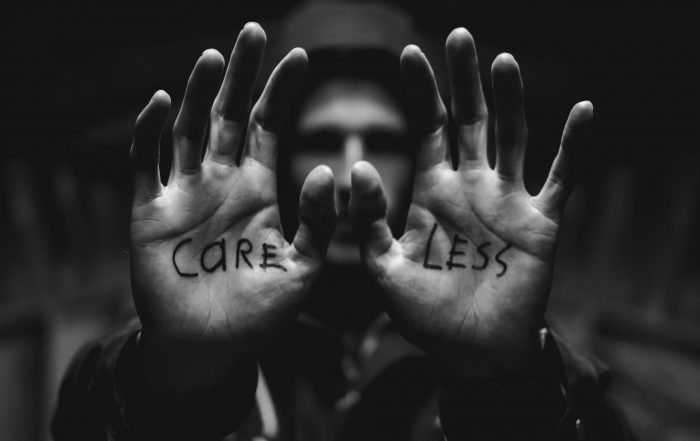Simon Pickard
Should We Care Less About Coronavirus?
A few weeks’ ago, the UK Disaster Emergencies Committee launched an emergency fundraising appeal to help combat the spread of Coronavirus among refugee populations. It raised an amazing £5m from the British public on the first day alone, with funds distributed to their 14 international NGO partners.
When the appeal was launched, I applauded the focus on the most vulnerable populations in countries such as Yemen, Syria and South Sudan.
We know the humanitarian response in these countries is already struggling with the multiple impacts of long-term conflicts. In the face of a global pandemic sweeping across crowded refugee camps, fears are that the humanitarian response could be overwhelmed without an urgent focus on stopping COVID-19.
That is certainly a narrative we’ve heard over the past few months in the humanitarian and international development sector. The Disaster Emergencies Committee is far from alone in elevating COVID-19 response to the top of the priority list. I recently took part in a webinar organised by ID Connect exploring the impact of Coronavirus on the sector. We heard from David Wright, Chief Operating Officer of Save the Children International, how they had formed an immediate taskforce to prioritise and adjust programmes in response to COVID-19. The virus and associated travel restrictions has made delivering some services impossible, but also put other important but non-life saving services on the back burner.
But in the past week I’ve heard a few things that give me pause for thought. Is the humanitarian sector right to care so much about COVID-19 in humanitarian settings? Or are we elevating the virus response ahead of other critical needs that matter just as much? Elrha recently funded a group of 15 research studies investigating multiple aspects of COVID-19 in refugee and conflict-affected communities to help inform the response over the coming months. These studies are only in the early stages, but a couple of common themes are already being reported from different contexts. One is that many people just don’t believe Coronavirus is real. Perhaps that’s no surprise. We’ve seen similar in multiple news stories from the US, thought to be one of the reasons why cases continue to increase in so many states many months after the pandemic began.
The other message from these studies is more challenging to hear. Even where people think COVID-19 is real, they just don’t think it is a top priority. When faced with the economic and political turmoil in Lebanon, or escalating occupation in Gaza, dealing with the virus is understandably given a lesser priority than here in the UK. But what if this feeling is much broader? Among all of the economic hardships, hunger and other diseases, why should COVID-19 rank especially high? After all, in many of the most disadvantaged countries, the numbers of cases and deaths attributed to the virus are small in comparison to the multiple other common causes of mortality.
One of our partners working to combat malnutrition in the Sahel region highlighted that their biggest concern was not COVID-19 itself, but the potential for a measles outbreak. Regular vaccinations aren’t being delivered in the same numbers as normal because of the disruption caused by COVID-19, including fears about making visits to the local health clinic and stigmatisation related to the virus. This was highlighted as a major concern by UNICEF and WHO, pointing to data that suggests an alarming decline in the number of children receiving lifesaving vaccines.
Are those of us working in international development missing what’s most important to the people we seek to serve? Are we repeating mistakes seen in previous outbreaks, where the aid sector elevates the response to one disease ahead of what local people are saying matters most to them, making the response less trusted and effective? The challenging dialogue around an anti-racist aid sector, inspired by the Black Lives Matter protests, has prompted many people to pledge to listen more as well as reaffirming previous commitments to localisation. But with COVID-19, are our direct experiences of seeing our health systems overwhelmed in Europe or US leading us to prioritise the pandemic response ahead of all else? Shouldn’t we be listening more carefully to the reality and priorities of local populations in the countries in which the international aid sector is working?
As a minimum we should be focusing on multiple pressing health concerns and ensure a response that integrates COVID-19 within existing health services. That’s not a simple message that will work most effectively for the Disaster Emergencies Committee’s fundraising campaign, which is appealing to the direct experiences of the general public in the UK. But it needs to be central to how their NGO partners spend the funds raised if we’re serious about committing to an aid response which listens and doesn’t just impose an agenda from outside.




